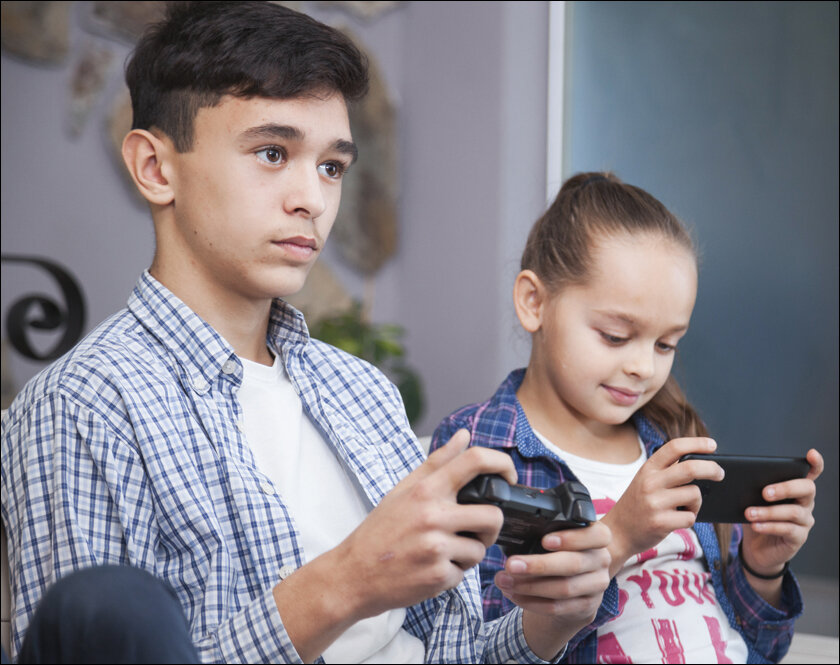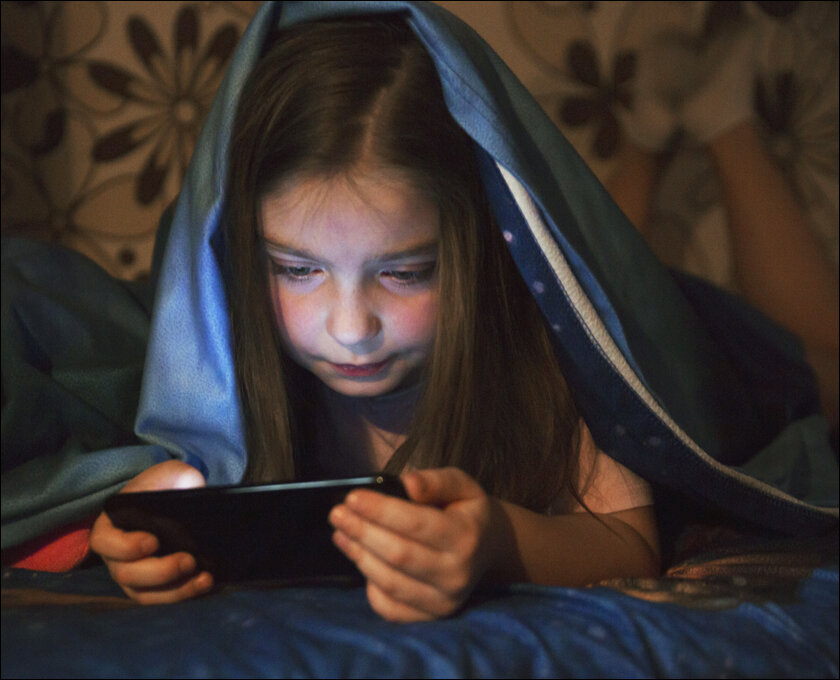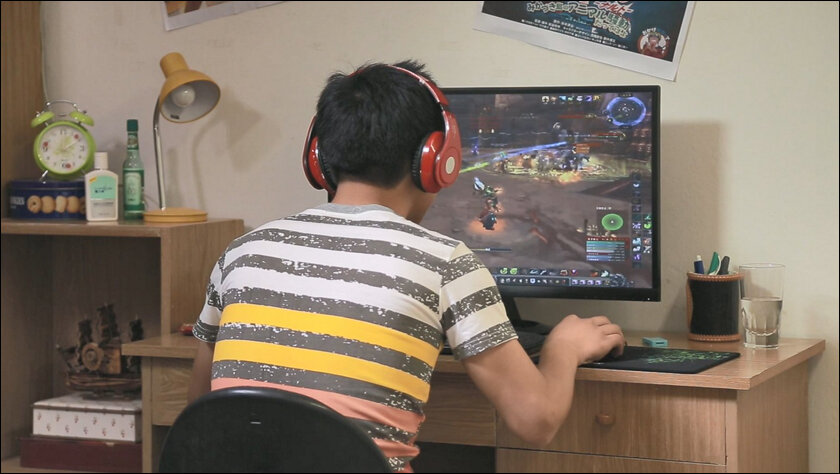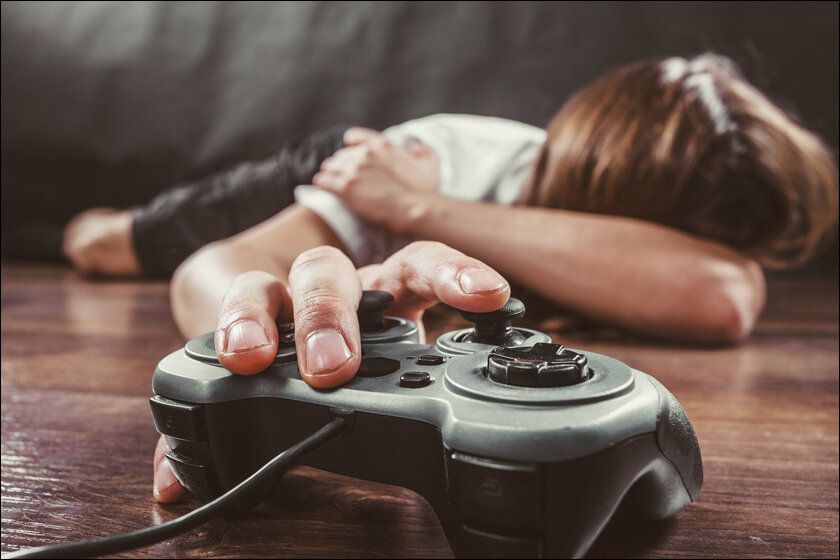The results of a new study from McGill University in Canda reveal how video game addiction in childhood increases the chances of psychosis.
6-year-old Aman sits in his room, playing on his PlayStation while his mother and his aunt watch him silently from the door. ‘He’s such a low-maintenance kid,’ says his mother proudly.
When 8-year-old Priyanka returns from school in the afternoon, her parents are still at work and won’t be home for a few hours. So, she waits for them patiently, watching cartoons on the television until they return.
Aakash is only two but he throws a big fuss if anyone tries to feed him. The only way to get him to eat his meals is to play videos on the iPad as a distraction. So that’s what his mom and dad do.
What none of these parents realize is that while this might simplify things for the time being, the overexposure to the screens will have long-term implications on the kids which would last well into adulthood…

What the Study Reveals
Researchers from McGill University in Canada conducted a study on 1,226 participants born between 1997 and 1998. They collected the data and analysed it and it has revealed that smartphones and social media use in adolescence is linked to paranoia, delusions, hallucinations and ‘bizarre ideas’ by the time a person reaches 23.
“Trajectories of higher video gaming and increasing-then-decreasing (curved) computer use during adolescence were associated with higher levels of psychotic experiences at age 23 years,” claims the study that was published in the journal JAMA Psychiatry.
How the Study was Conducted
Specific questions were asked to the participants to conduct the study. These included questions like whether they experienced persecutory ideations, bizarre experiences or perceptual abnormalities. These included questions like whether they felt people around them often said things that may have double meanings or if they experienced thoughts that were not their own. They were also asked if they thought they might be hearing voice when they are alone.
As per the research, it was determined that there was a 3-7% more chance of psychotic experience by the time a person hit adulthood if they had a pronounced exposure to video games during their adolescent years.
The technology in itself wasn’t responsible for this behaviour but the child’s overreliance on smart devices meant there was an increased chance of mental illness.
The study also concluded that high media use could lead to mental health issues such as loneliness, bullying and difficulties in parent-child relationships.

How to Identify Such Patterns in Kids
To be able to help kids avoid overexposure to screens, parents should educate themselves on the potential risks. They should know about the negative impact it can have on one’s mental wellbeing. They should also ensure that they are completely aware of how much time their kids are spending in front of screens.
Parents should watch out for signs like irritability, withdrawal and an inability to control screentime. Random mood swings, inability to concentrate and emotional outbursts should also be taken as cues.
Apart from educating themselves, parents should also tell the kids about the negative impacts of increased screen time as being aware would make them understand why such restrictions are in place.

What are some Preventive Measures?
These days, there is no way to make sure kids are kept away from smartphones and video games but what parents can do is to ensure that the time spent on these is monitored and kept under check. It should also be ensured that screen time does not come at the expense of more important activities like social interactions and physical exercise.
Moreover, instead of just banning the kids from using screens, parents should educate them about the negative impact of over exposure to screens. Upon noticing that kids are addicted to screens or are already showing signs of mental illness like irritability or lack of concentration, consulting a professional like a counsellor or a paediatrician can go a long way.

The Last Word
We live in a digital age where it is near impossible to keep kids away from screens. But what we can ensure is that by being proactive, we can ensure balanced digital habits that will help avoid digital dependency and also safeguarding mental well-being in today’s tech-driven world.
In case you missed:
- Traditional Learning Making a Comeback? Kerala Bans WhatsApp Study Groups
- How to spot a Deepfake Video
- Talk to ChatGPT with new AI Glasses
- 12 Ways to Protect Yourself from UPI Fraud
- WWDC 2025: Apple unveils Liquid Glass Design & AI-Powered Future
- AI and Loneliness: Culprit or Cure?
- Presenting Gemini Live, Google’s Response to ChatGPT Voice
- OpenAI finally unveils its Advanced Voice Assistant!
- You can Now Create a Video From a Single Image!
- TalkBack, Circle To Search & 3 More Google Features added on Android










